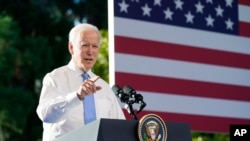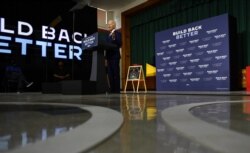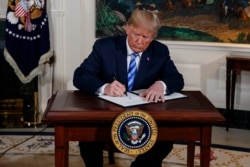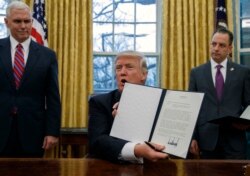In his meetings with G-7 and North Atlantic Treaty Organization allies in Europe last week, President Joe Biden missed no opportunity to repeat his assertion that “America is back” on the world stage and ready to take the lead in addressing big problems like climate change, rising authoritarianism, cybersecurity and the distribution of coronavirus vaccines to low- and moderate-income nations.
Among other things, Biden rallied the leaders of some of the world’s largest democracies behind a plan to create a global infrastructure fund, called the Build Back Better World Partnership, or B3W, in a specific bid to challenge China’s eight-year-old Belt and Road Initiative (BRI).
The name of the program is a very deliberate callback to Biden’s campaign motto that promised he would help the U.S. “build back better” from the devastation of the pandemic.
In announcing the program, he described it as “more equitable” than China’s BRI, and said B3W “will not only be good for the countries, but ... good for the entire world and represent values that our democracies represent, and not autocratic lack of values.”
After four years of the Trump administration, which tore up agreements, trampled norms and antagonized long-standing allies, Biden’s words were greeted warmly. But to many, the promises ring hollow, say experts such as Hans Kundnani, senior research fellow in the European Program at Chatham House, an international affairs think tank in London.
Even as they recognize that international cooperation is essential to solving global problems, Kundnani said, “Europeans don’t see the U.S. as a particularly reliable or consistent partner.”
Bleak message
“Overall, I would say that there is quite a lot of skepticism about this idea that America is ‘back,’ ” he said. “In particular, there is this sense among Europeans ... that maybe another Trumpian president gets elected in four years’ time. I think the shock of Trump, it's hard to forget that.”
It’s a bleak message echoed by experts inside the United States.
“The question of U.S. reliability is going to be a major challenge for the Biden administration,” said Barbara Bodine, former U.S. ambassador to Yemen and a three-decade veteran of the U.S. Foreign Service.
“There has simply got to be in the back of anyone's mind this question: Will any agreement that the United States makes, with either friend or foe, survive another turn of administrations?” she said.
Writing in World Politics Review, Stewart M. Patrick, director of the International Institutions and Global Governance Program at the Council on Foreign Relations, made a similar observation.
"The Trump era cast doubt on U.S. global staying power, encouraging close allies in Europe and Asia to hedge their bets against a suddenly capricious America ... and demolished what little remained of the bipartisan internationalist consensus. Democrats and Republicans now inhabit different foreign policy planets,” he wrote.
How did we get here?
The past several years have delivered a series of shocks to U.S. allies, who had come to take for granted an America that, while not always perfectly consistent in its actions, was at least not erratic.
The 2016 election was the first of those shocks, said Kundnani of Chatham House, because like most Americans, most U.S. allies did not expect the U.S. to elect a former reality television star with no political experience to run the country.
There was no shortage of other jolts for U.S. allies, as the former president lashed out at NATO and tried to build closer relationships with authoritarian regimes from Pyongyang to Moscow. But the next major shock came in 2018, when Trump withdrew the U.S. from the Joint Comprehensive Plan of Action, unofficially known as the Iran nuclear deal.
Most Europeans had never looked beyond the Obama administration’s support of the agreement, and so failed to understand that a lack of Republican support domestically required Obama to seal the agreement with an easily rescinded executive action rather than binding legislation.
Different perspective on 2020 election
All told, Trump would withdraw the U.S. from at least 13 major international agreements, organizations and even treaties, often in ways that seemed arbitrary and capricious to allies.
So, as the 2020 elections approached, those allies looked to the vote as a signal that would suggest whether the Trump administration was an aberration, or an indication that some sort of permanent change had taken place within the U.S.
With his 2020 victory in hand, Biden has been eager to cast the result as proof that the U.S. is prepared to return to its former place as the leader of the world’s democratic nations. But many U.S. allies took a very different message from the election result.
Continued skepticism
True, Biden did win the presidency with more than 81 million votes, the most ever received by a presidential candidate. But Trump still received more than 74 million votes — the second-largest number ever cast for a presidential candidate, and over 11 million more votes than he had received four years earlier.
So, as Biden insists America is back, Kundnani says Europeans are seeing something very different. “What the Europeans are looking at when they look at America is a deeply divided country — deeply polarized in all the ways that we know,” he said.
That has profound consequences for how other countries deal with the U.S. when it comes to long-range planning.
Shape of future deals
The Build Back Better World Partnership will be a key challenge for the Biden administration. Getting countries to sign on to billions of dollars in long-term financing arrangements that affect their development for decades to come will depend on their belief that the program will still exist when Biden is no longer in the White House.
And this will be true not just of B3W, but of any major multilateral initiative Biden undertakes.
Bodine, now the director of the Institute for the Study of Diplomacy at Georgetown University, said that at a minimum, she expected that allies that strike major multilateral agreements with the U.S. will insist that there be “rigorously outlined withdrawal provisions,” even though, she noted, the Trump administration ignored its withdrawal obligations in the Iran nuclear deal.
Adjustments made
More broadly, she said, she expects international compacts to be structured in a way that is meant to survive a potential U.S. exit, pointing out that other nations have already begun adjusting deals to the United States’ absence.
After Trump withdrew from the Paris climate accord in 2020, the remaining nations voted to hold to their commitments. And when the U.S. left the Trans-Pacific Partnership trade deal in the early days of Trump’s presidency, the major economies of the region pressed ahead — and welcomed the United States’ biggest regional rival, China, into the pact.
Biden’s greatest advantage here is that he has long-standing personal relationships with leaders all around the globe and is broadly seen as a man of his word. But his greatest disadvantage is something he cannot really control: the U.S. political system’s bouncing back and forth between highly polarized parties that undo each other’s commitments.
“The problem is not Joe Biden’s credibility; it’s our political system’s credibility,” said Bodine.
Recalling former Secretary of State Madeleine Albright, who once referred to the United States as “the indispensable nation,” Bodine said her fear is that a United States that cannot persuade other nations to take its commitments seriously could “go from indispensable to inconvenient to irrelevant.”









